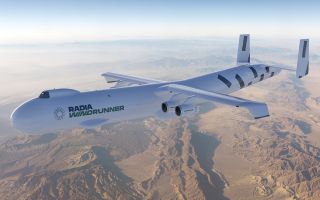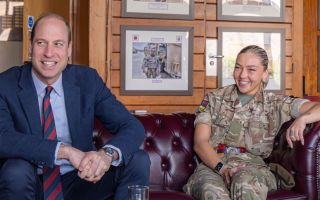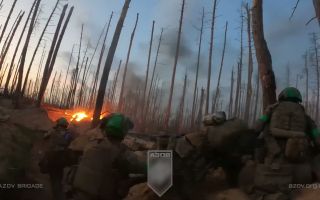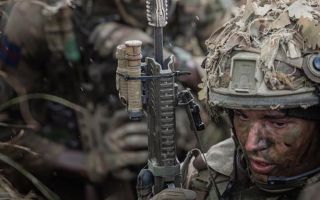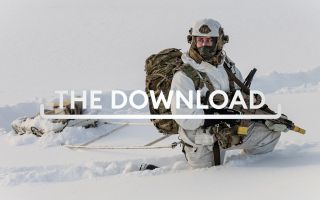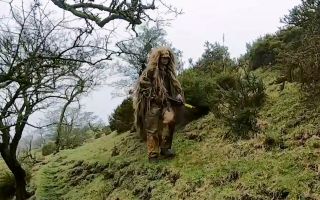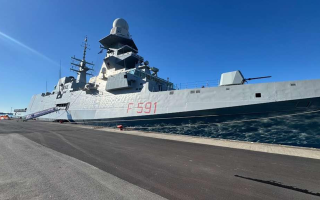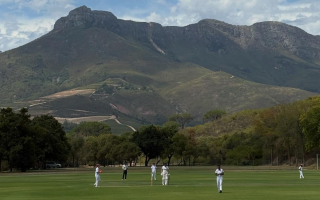Exclusive: A look inside 90 Signals Unit – the Royal Air Force's secret cyber force
A British fighter jet stranded on foreign soil is highly sensitive technology at risk of falling into the wrong hands.
Thousands of miles away in North Yorkshire, specialists from 90 Signals Unit (90SU) are called on to deliver secure communications both on the ground and back home – crucial so that the aircraft can be recovered.
That operation in June underlined the importance of a niche but critical part of UK defence.
While fighter jets, warships and tanks are the visible symbols of military power, none of them can operate effectively without robust communications and cyber protection. This is where 90SU, based at RAF Leeming, comes into play.
What is the role of 90 Signals Unit?
90SU is the RAF's expert cyber force. Their mission is twofold: first, to provide secure communications for the RAF and, more commonly these days, Nato, anywhere in the world; and second, to defend those networks from hostile attack.
"That gets to the heart of one of the key challenges we are focused on today – deterring Russia," said 90SU's Commander, Group Captain Andy Colley.
"Clearly, 90SU on its own is not going to deter Russia, but we absolutely need to play our part in a defence response, but more importantly, a Nato response.
"For us, that means every problem we try and solve, we have to think what does that mean in a Nato context."
Formed in 2006, the unit has deployed on every RAF operation since. Whether that be fast jets flying in the Middle East, surveillance aircraft over the Baltic, or Typhoons on Quick Reaction Alert at home in the UK, there is a 90SU footprint ensuring the backbone of comms and cyber holds firm.
It is comprised of about 1,000 personnel, spread across eight UK bases and several overseas locations. They even have people deployed with Carrier Strike Group 25 – the largest military operation mounted by Britain in a generation.
"There's nearly 1,000 people here whose sole remit in life, sole focus, is the same. We absolutely strive to get after high-end technology and apply that in a military context – it's brilliant fun," Gp Capt Colley said.
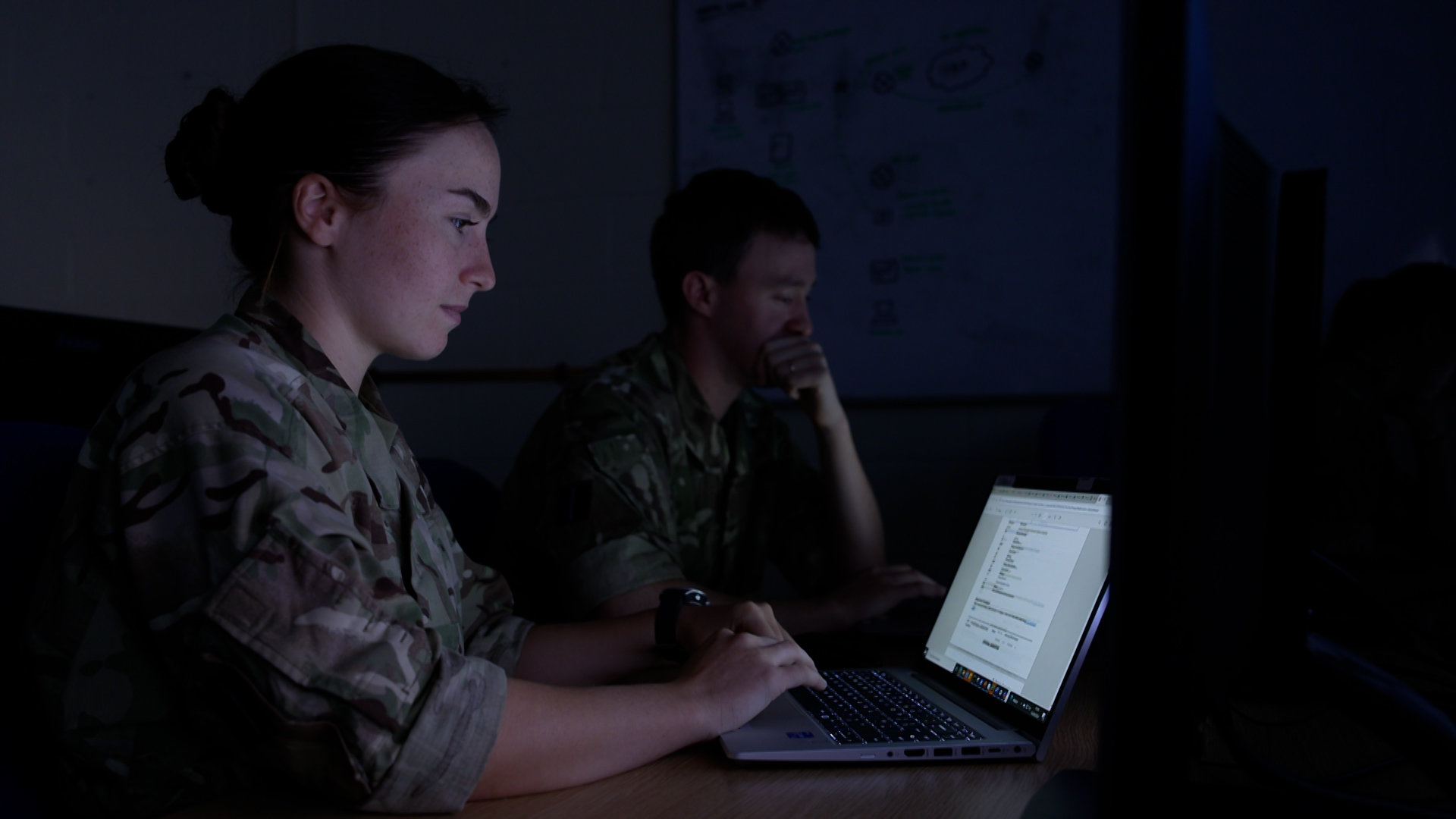
Cyber frontline
BFBS Forces News was granted rare access to 90SU's secretive operations room at Leeming.
Banks of screens displayed live network traffic globally; lines of code scrolling as specialists pored over every detail.
It is here that digital threats are detected and countered – a cyber frontline most people never see.
"We have a 24/7 presence here to monitor the networks and the different systems that are out on operations," Flight Lieutenant Victoria Boyes told us.
"Essentially, what we do here enables all the communications on all these operations. We have the ability to remote in and look at the different things going on across the world."
The threats are real and constant. From criminal hackers probing for weaknesses to state actors attempting to infiltrate military systems, the risks can range from nuisance attacks to potentially catastrophic breaches.
In a world where information is as valuable as ammunition, 90SU's personnel leave nothing to chance.
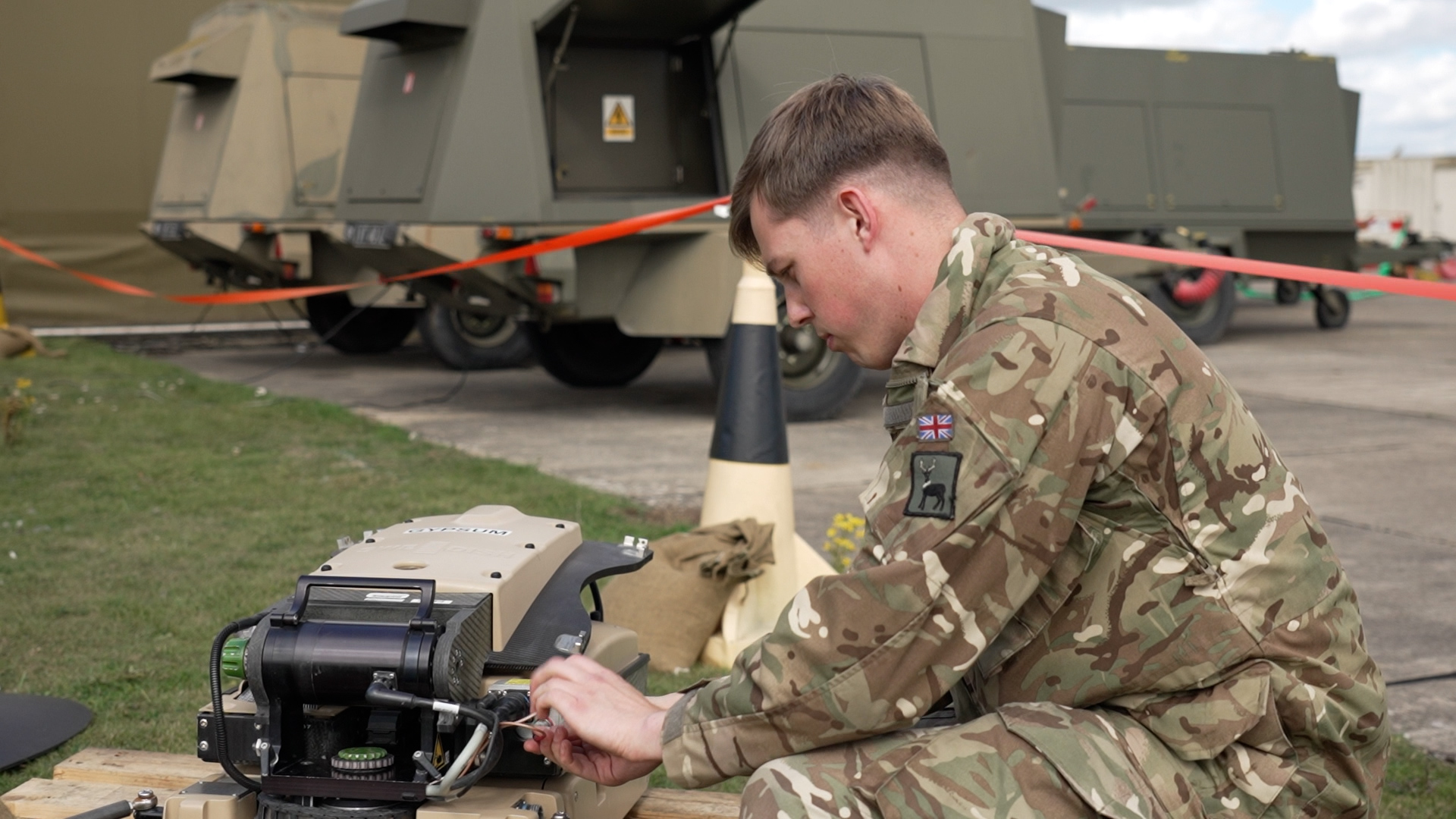
Niche expertise
Unlike traditional branches of the military, much of 90SU's work is invisible. When their systems work, nothing happens – which is precisely the point.
It means an aircraft in the field has the secure link it needs, and commanders can send orders without fear of interception. And it means the RAF's global network remains resilient under pressure.
Few outside defence circles are even aware that the unit exists. Yet without them, the RAF's operations – from routine training sorties to combat missions – would be at considerable risk.
We joined some of 90SU's personnel on an exercise at an undisclosed location. There, we met Captain Lewis Reed, a British Army officer and Flight Commander within 90SU, currently midway through a two-year exchange with the RAF.
"I come from a Royal Signals background," he said. "It's the same as any RAF flight lieutenant or flying officer would be doing; commanding and leading 60 personnel within the Tactical Communications Wing."
Capt Reed explained the exercise was all about proving his personnel can get the job done under pressure.
"We're looking to test our ability to deploy at pace, in support of any potential Nato crises, for example.
"It's part of a broader transition to a war-fighting stance. Instead of the old Herrick-style static campaign, we're looking to deploy in an agile way at good speed with all of our kit."
Why it matters
The importance of their mission is easy to overlook. Fighter pilots and ground troops attract the spotlight, but without secure comms, they cannot function effectively.
The stranded F-35 in India illustrated the stakes. Without secure networks to coordinate the recovery, Britain risked losing one of its most advanced aircraft – and potentially sensitive technology – to adversaries.
It was partly thanks to 90SU that the mission succeeded.

